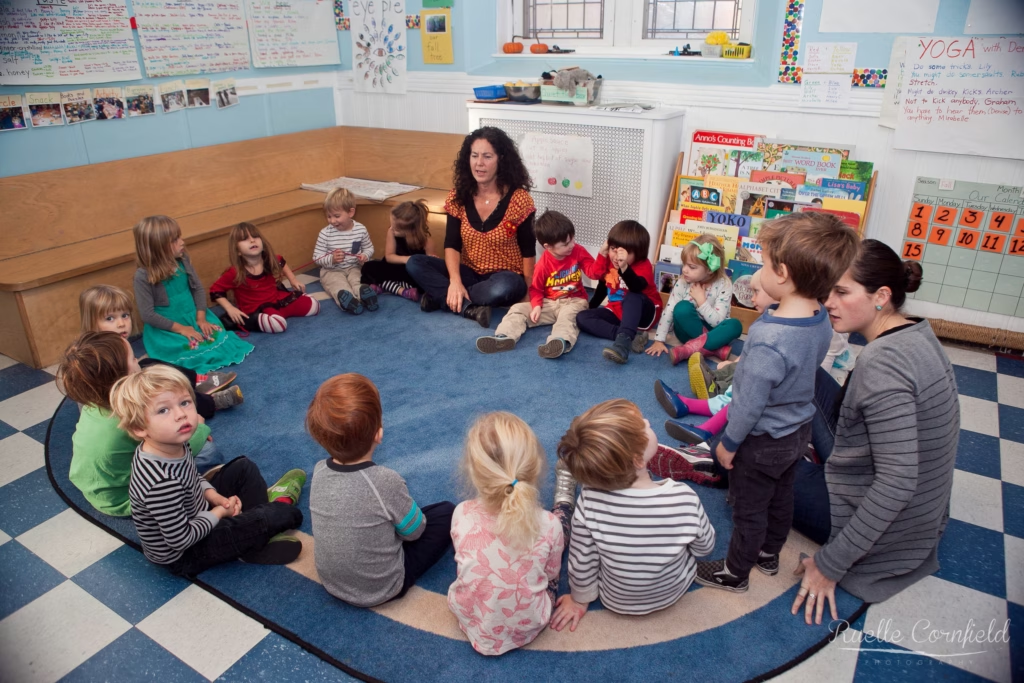There are numerous nursery schools offering innovative and intuitive curriculum and facilities. With so many options available—each claiming to be the best—it’s easy for parents to feel unsure about where to start. A school’s curriculum and facilities truly matter at this stage, as they lay the groundwork for your child’s learning and development.

This guide is for parents browsing options or filling out a nursery admission form. We will discuss the nursery school curriculum in detail here.
Why Nursery School Curriculum Matters
Many parents look at the curriculum when choosing a preschool—and rightly so. But it’s important to see it as more than just a list of topics or activities. A strong learning curriculum is the heartbeat of early education. It shapes how your child thinks, explores, interacts, and even begins to understand the world around them.
The best curricula don’t just teach ABCs and numbers. They gently weave in life skills, emotional awareness, problem-solving, and communication. It’s in the way children are encouraged to ask questions, work in groups, express themselves through play, or reflect on their feelings.
So, when evaluating a nursery school, ask what your child will learn and how they will learn it—because that will stay with them for life.
What to Look for in a Nursery School Curriculum
When comparing schools, look for a curriculum that balances academics with emotional, social, and physical development. Some nurseries follow Montessori methods, while others might use a play-based or thematic learning approach. Whichever style you prefer, the key is to ensure it’s age-appropriate, engaging, and designed to nurture curiosity.
Here are some questions to ask:
- Does the curriculum promote hands-on learning and exploration?
- Are activities varied to support different learning styles?
- How are language, math, art, and motor skills introduced?
The best preschool in Coimbatore, for instance, combines structured learning with creative play to ensure children enjoy the learning process while building a strong foundation for future classes.
Don’t Overlook Extracurricular Activities
While academics are important, extracurriculars play a big role in shaping a child’s personality and confidence. When evaluating nursery school, ask about the activities beyond the classroom.
Some kindergartens may offer music, dance, yoga, storytelling, or even beginner-level coding and robotics. These opportunities help children discover their interests early on and promote holistic growth.
You can also check whether the preschool celebrates festivals, hosts talent shows, or includes regular outdoor play. These experiences add fun and excitement to the school routine, keeping children happy and motivated.
Facilities Make a Big Difference
Even the best curriculum can fail if the facilities don’t support it. Clean, safe, and well-maintained surroundings are non-negotiable when it comes to your child’s well-being.
Take a school tour if possible or ask for a virtual walkthrough. Here’s what to check:
- Are classrooms child-friendly and well-ventilated?
- Is the play area clean and equipped with safe toys?
- Are there CCTV cameras and secure entry/exit points?
- How well-maintained are the washrooms?
Cleanliness and hygiene are especially important in early education settings. Nurseries that prioritise safety, such as controlled access, sanitised classrooms, and trained support staff, help reduce risks and ensure parents’ peace of mind.
Conclusion
In the early years, every experience shapes a child’s sense of self, confidence, and curiosity. That’s why choosing a preschool with the right curriculum isn’t a small decision. It’s a foundation for how your child will approach learning and relationships for years to come.







Leave a Comment
You must be logged in to post a comment.